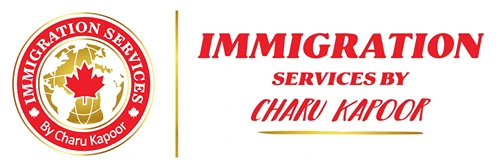Professional and Skilled Workers
The predominant pathway for individuals immigrating to Canada involves participating in economic immigration programs. These initiatives are instrumental in shaping Canada’s demographic landscape and addressing specific economic needs. The immigration targets established for the period of 2018-2020 underscore the significance of economic immigration, envisioning the integration of approximately 200,000 new economic immigrants annually. This proactive approach highlights Canada’s commitment to fostering a dynamic, diverse, and robust workforce by welcoming individuals who possess the skills and expertise required to bridge prevailing labor gaps within the Canadian economy.
The emphasis on economic immigration echoes Canada’s dedication to ensuring the nation’s prosperity while providing foreign nationals with a gateway to meaningful opportunities. This approach is a symbiotic one, as it aligns the aspirations of those seeking a better life with the country’s objective of sustainable growth. By attracting individuals with sought-after skills, Canada leverages their contributions to drive innovation, productivity, and success across various sectors.


Discover your Canadian
Immigration Options
What is Economic Immigration to Canada?
Economic immigration to Canada refers to a set of immigration programs and initiatives aimed at attracting foreign nationals who possess the skills, qualifications, and expertise needed to contribute positively to the Canadian economy. The primary objective of economic immigration is to fill labor gaps, address workforce shortages, and stimulate economic growth by welcoming individuals who can enhance various sectors within Canada
Economic immigration encompasses a collection of immigration programs strategically designed to wield a positive impact on the Canadian economy. At its core, this approach aligns immigration objectives with economic growth, channeling efforts to address workforce demands and enhance the nation’s economic vitality. A pivotal component of economic immigration revolves around attracting skilled workers who possess specialized talents that can effectively address shortages within Canada’s labor landscape. By inviting these skilled individuals, economic immigration programs foster the foundation for lasting careers that not only benefit the workforce but also contribute significantly to the growth and sustenance of the Canadian economy.
Central to the concept of economic immigration is skilled worker programs, which serve as catalysts for long-term economic development. These programs are carefully structured to usher successful applicants into the ranks of Canadian permanent residents. This distinction grants them the esteemed status of permanent residency, enabling them to actively engage in the social, cultural, and economic fabric of Canada. Moreover, this permanent residency status underscores Canada’s acknowledgment of the significant role skilled workers play in nation-building, as they become integral members of communities while contributing their expertise to sectors that hold strategic importance.
Economic immigration, with its focus on skilled workers, exemplifies Canada’s dynamic approach to ensuring sustainable prosperity. The alignment of individual aspirations with national objectives forms a mutually beneficial partnership that not only elevates the lives of immigrants but also amplifies the nation’s competitiveness, innovation, and economic resilience on the global stage.
Federal Skilled Worker (FSW)
For individuals considering the Federal Skilled Worker (FSW) program, it’s essential to meet certain prerequisites. One of the fundamental requirements is possessing at least one year of skilled work experience. This experience should be in an occupation that falls under the skilled categories specified by the program.
What sets FSW apart is its accessibility to foreign nationals residing outside of Canada – it doesn’t necessitate a prior connection to the country. As a result, it emerges as a promising immigration avenue for those seeking to establish themselves in Canada from abroad.
However, aspiring FSW candidates should be aware of the stringent eligibility criteria that govern the program. Apart from the work experience stipulation, other factors come into play, including the level of education, age, and language proficiency. FSW candidates are evaluated holistically, with these aspects collectively contributing to the eligibility determination.
A robust educational background, linguistic abilities, and relevant skills enhance the prospects of a successful application. This comprehensive approach ensures that individuals who secure entry through the FSW program are equipped to seamlessly integrate into the Canadian workforce and society, fostering a path towards long-term success and contribution to the nation’s prosperity.
Canadian Experience Class (CEC)
The Canadian Experience Class (CEC) stands as an economic immigration program with a distinctive focus on Canadian experience. To be eligible, candidates must possess a minimum of 12 months of full-time, skilled work experience that they have completed within Canada. This work experience should have been gained over the course of the previous 3 years before applying to the program.
In essence, the CEC program recognizes the value of candidates who have already established themselves in the Canadian job market, contributing their skills and expertise to the country’s economy.
It’s important to note that the CEC program is tailored for individuals who have acquired relevant work experience within Canada. As such, foreign nationals who lack this specific Canadian experience are not eligible to apply under this program. The program’s requirement for Canadian work experience underscores its emphasis on integration and the ability to thrive in the Canadian workplace.
For those who fulfill this criterion, the CEC pathway offers a streamlined route to Canadian permanent residency, recognizing their valuable contributions to the nation’s workforce and fostering a sense of belonging within the Canadian society.
Quebec Immigration for Skilled Workers
The province of Quebec sets itself apart by wielding substantial autonomy and jurisdiction over its immigration policies and processes, a level of authority that distinguishes it from other provinces and territories. This unique position allows Quebec to administer its distinct immigration programs, which operate independently of the federal Express Entry system.
Navigating the path to permanent residency in Quebec involves a two-step journey. The initial step entails submitting an application to the Quebec government to obtain a Certificat de sélection du Québec (CSQ), a certificate of selection specific to the province. Once an applicant secures a CSQ, they gain the eligibility to proceed with the second step: submitting a paper-based permanent residency application to Canada’s federal immigration authorities.
Quebec’s immigration programs underscore the province’s commitment to welcoming individuals who can make meaningful contributions to its growth and development. By orchestrating its own immigration strategies, Quebec remains an influential player in shaping its demographic and economic landscape.
Within Quebec’s immigration landscape, two primary programs cater to skilled workers seeking permanent residency:
Quebec Experience Program (PEQ)
Tailored to individuals who have already established themselves in Quebec through studies or work, PEQ offers a streamlined route to permanent residency. The program acknowledges the value of candidates who have contributed to the province’s economy and society, providing them with a path towards securing their status.
The Quebec Experience Program (PEQ) mandates that skilled workers reside in Quebec and possess a minimum of 12 months of full-time, skilled work experience achieved within Quebec in the preceding 2 years. Notably, PEQ boasts a swifter processing timeline in comparison to the Quebec Skilled Worker (QSW) program, although it does entail more stringent eligibility prerequisites. Furthermore, PEQ applicants are obligated to showcase advanced intermediate proficiency in spoken French. This emphasis on linguistic competence aligns with Quebec’s commitment to fostering integration and effective communication within the province.
Quebec Skilled Worker (QSW)
Aimed at skilled workers with the expertise and capabilities to meet Quebec’s labor market needs, the QSW program evaluates candidates based on various factors, including work experience, education, and language proficiency. Successful applicants contribute to Quebec’s workforce, reinforcing its economic and social fabric.
The Quebec Skilled Worker Program (QSW) presents an opportunity for skilled workers residing outside of Quebec, as it does not inherently mandate a Quebec affiliation. The QSW program employs a points-based grid to evaluate program eligibility and to establish candidate rankings. Prospective applicants are required to submit an electronic Expression of Interest (EOI) via the Arrima Portal. Subsequently, the most competitive candidates will receive invitations to apply for the program. This system emphasizes merit and qualifications, enabling the selection of candidates who can effectively contribute to Quebec’s labor force and overall growth.
Work Permits
Individuals with the desire to work in Canada, yet ineligible for existing immigration programs, often find temporary work permits to be an appealing avenue. Temporary work permits not only provide the opportunity to gain valuable work experience but also enhance a candidate’s prospects for eligibility in permanent residence immigration programs. By accumulating work experience through a temporary work permit, candidates can demonstrate their skills, adaptability, and contribution to the Canadian labor market, thereby bolstering their chances for successful permanent residency applications.
Acquiring a temporary work permit usually involves securing a job offer from a Canadian employer. This job offer serves as evidence of the candidate’s intended employment and demonstrates their alignment with the Canadian labor market’s needs. The experience gained during this temporary work period can be pivotal in strengthening their profile and meeting the criteria set by permanent residence immigration programs. This process creates a mutually beneficial arrangement, allowing skilled workers to contribute to Canada’s economy while potentially paving the way for their permanent settlement in the country.

